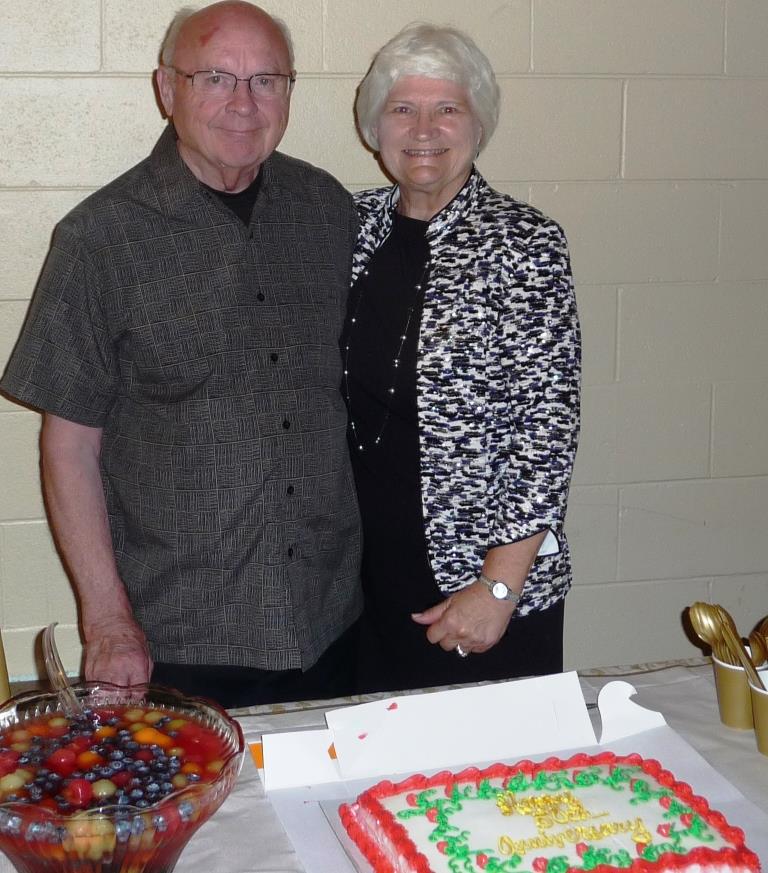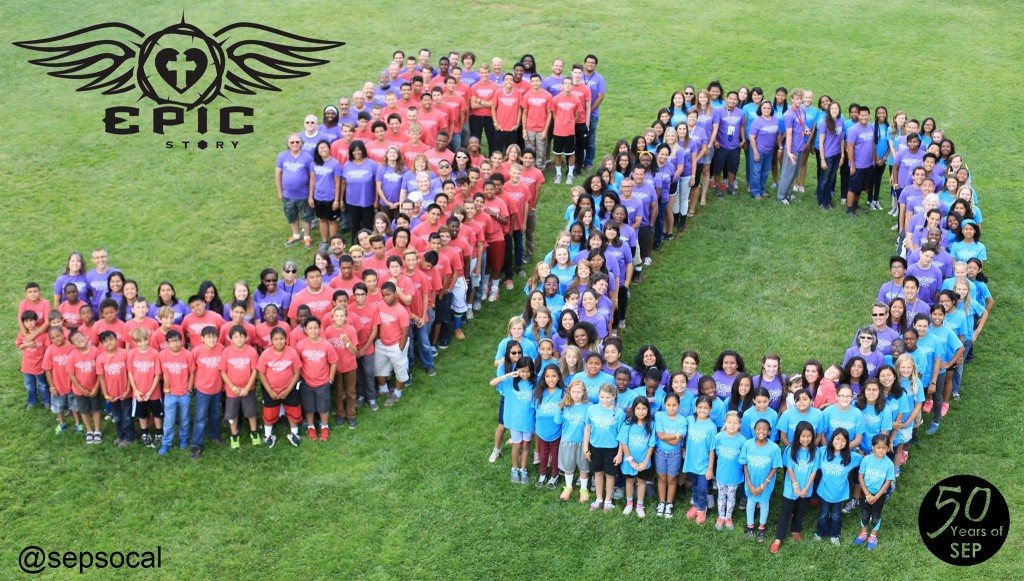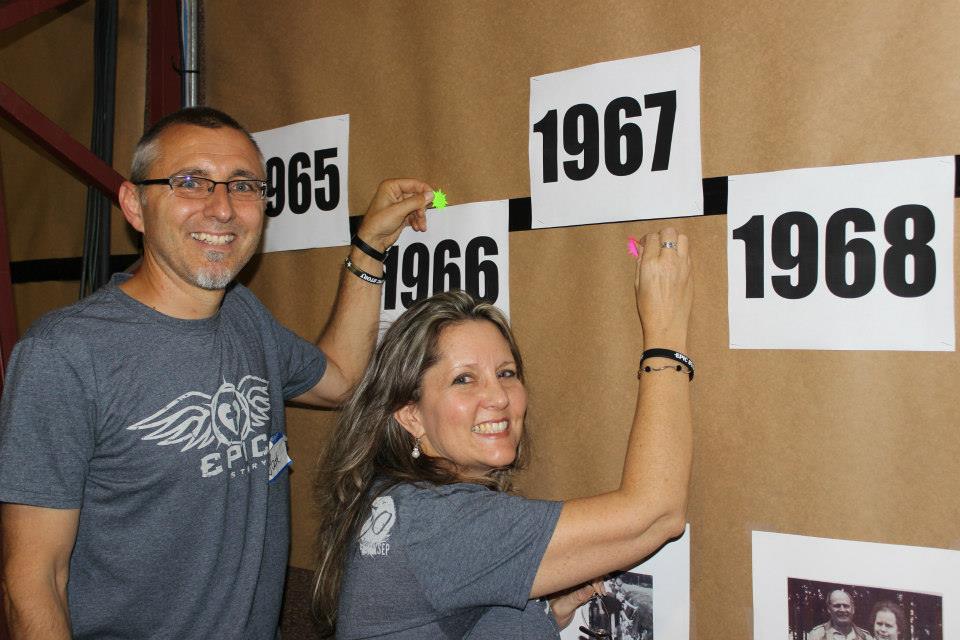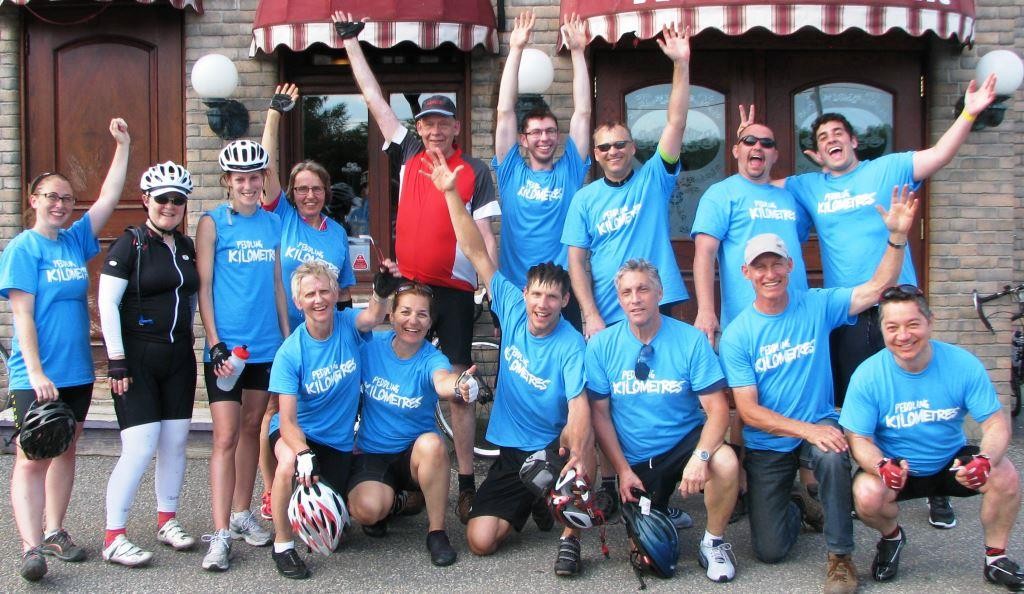GCI elder David Hunsberger and his wife Shirley (pictured below) recently celebrated their 50th wedding anniversary with a reception at Living Grace Christian Fellowship, GCI’s congregation in Denver (north), Colorado. The Hunsbergers were married on July 14, 1965. Congratulations David and Shirley!
Month: July 2015
GCS reaccredited
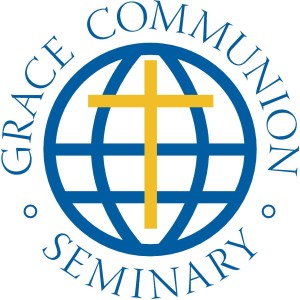 We’re pleased to report that Grace Communion Seminary (GCS) was recently notified that the Distance Education Accrediting Commission (DEAC), in a meeting on June 26, voted to renew GCS’s accreditation through June 2020. The letter notifying GCS of this good news said this:
We’re pleased to report that Grace Communion Seminary (GCS) was recently notified that the Distance Education Accrediting Commission (DEAC), in a meeting on June 26, voted to renew GCS’s accreditation through June 2020. The letter notifying GCS of this good news said this:
In receiving renewal of accreditation, GCS has demonstrated its commitment to educational standards and ethical business practices that assure quality, accountability, and improvement in higher education. The scope of GCS’s accreditation extends to the programs listed below.
- Master of Pastoral Studies (MPS)
- Master of Theological Studies (MTS)
- Master’s-Level Continuing Education Courses (MCLE)
In passing on the good news, Dr. Gary Deddo, the new president of GCS, wrote this:
Congratulations to all who contributed to the monumental effort that has brought GCS to this point. Most especially thanks should be extended to Dr. Russell Duke who so ably and with great perseverance led the charge.
GenMin camp reports
SEP So Cal
This report is from SEP So Cal camp directors Anne and Mark Stapleton.
This summer SEP So Cal had 158 campers and 87 staff. We celebrated our 14th year as a GenMin camp, our fifth year meeting at Pine Valley Bible Conference Center (near San Diego), and the 50th anniversary of the founding of the SEP camp in Orr, Minnesota.
In keeping with the EPIC Story theme of GenMin’s 2015 camp curriculum, we used the idea of “story” to tell the story of SEP, using a timeline that stretched around the room (see below). As part of an opening celebration we pointed beyond the camp story and made sure that every camper and staff member knew they were part of the EPIC Story of God. To symbolize that inclusion, we had each person get up during a worship segment and place a colored dot on the timeline near the year they were born.
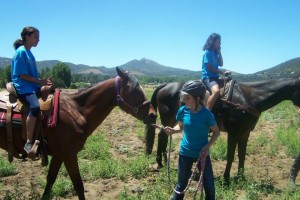 As in years past, this summer SEP So Cal was wonderfully diverse. We had participants age 18 months to early 70s; and participants who are African-American, Asian, Filipino, Hispanic, Middle Eastern and Caucasian. Sixteen states were represented at camp.
As in years past, this summer SEP So Cal was wonderfully diverse. We had participants age 18 months to early 70s; and participants who are African-American, Asian, Filipino, Hispanic, Middle Eastern and Caucasian. Sixteen states were represented at camp.
This year we added a horse program and rappelling for junior campers. For the senior campers we continued our equipping tracks where each chose a track to further their skills, education and ministry. The goal of these tracks is equipping youth to return to their home church, community and other places of influence so they can contribute to the growth of others, participate in church life, and simply help make the world a better place.
Pathways Camp, Ohio
This report is from Pathways camp director Aaron Frim.
 In keeping with the EPIC Story theme, Pathways camp was once again an amazing experience. We had 49 senior campers, 27 junior campers and 8 mini-campers served by 54 staff members. About 20% of the staff members were first-timers. Pastor Jeff Broadnax served as camp chaplain, giving most of the chapel messages. There was much positive feedback from campers regarding the EPIC Story curriculum. That curriculum was adapted for use with the junior campers with Gary Weldon serving as story-teller.
In keeping with the EPIC Story theme, Pathways camp was once again an amazing experience. We had 49 senior campers, 27 junior campers and 8 mini-campers served by 54 staff members. About 20% of the staff members were first-timers. Pastor Jeff Broadnax served as camp chaplain, giving most of the chapel messages. There was much positive feedback from campers regarding the EPIC Story curriculum. That curriculum was adapted for use with the junior campers with Gary Weldon serving as story-teller.
 Camp activities included archery, swimming, team-building, laser tag, woodworking, and dodge-ball. This summer we added bubble-ball (see picture at left). Once again we had life-equipping tracks for senior campers in photography, video, self-defense, worship, and missions. The missions track, led by Pastor Terry McDonald, was enhanced by the presence of two staffers and one camper from Colombia who came to Pathways to learn about running a camp in their own country.
Camp activities included archery, swimming, team-building, laser tag, woodworking, and dodge-ball. This summer we added bubble-ball (see picture at left). Once again we had life-equipping tracks for senior campers in photography, video, self-defense, worship, and missions. The missions track, led by Pastor Terry McDonald, was enhanced by the presence of two staffers and one camper from Colombia who came to Pathways to learn about running a camp in their own country.
In keeping with the missions theme, senior campers teamed up with 37 disadvantaged children from the local county who came to Pathways for an afternoon. Pastor Carrie Smith spearheaded this outreach, which has been going on at Pathways for several years. Carrie also led our inaugural CREW—a program in which we equip senior campers to become future staff members.
One day during camp we encountered a medical emergency and a torrential rainstorm. The combination reminded us that we are blessed to have on staff a registered nurse and three EMT/firefighters. One of our campers became ill and had to be transported to the hospital. Though he had to spend the night there, he was fine. That same night a storm flooded all roads in and out of camp and part of the camp grounds. We were left considering the reason behind these events. What was God’s plan, how did it fit into his EPIC Story? Perhaps it was the conversations that occurred between people later. Perhaps it was to prepare us to better face similar situations in the future. It definitely helped Pathways financially. The managers at the facility we use for camp decided to deduct one day’s rent, savings Pathways several thousands of dollars. In any event, we were reminded of God’s love and protection.
Stay focused on grace
Dear Brothers and Sisters,  I watched a video recently that parodies a TV infomercial—in this case hawking a fictitious Christian worship CD entitled It’s All About Me. The songs on the CD include Lord I Lift My Name on High, I Exalt Me, and There is None Like Me. Funny? Yes, but illustrative of the sad truth that we humans tend to worship self rather than God. As I noted last week in my “Quaffing Grace” letter, this tendency short-circuits our spiritual formation, leading to reliance on self rather than on Jesus, “The author and finisher of our faith” (Hebrews 12:2 KJV).
I watched a video recently that parodies a TV infomercial—in this case hawking a fictitious Christian worship CD entitled It’s All About Me. The songs on the CD include Lord I Lift My Name on High, I Exalt Me, and There is None Like Me. Funny? Yes, but illustrative of the sad truth that we humans tend to worship self rather than God. As I noted last week in my “Quaffing Grace” letter, this tendency short-circuits our spiritual formation, leading to reliance on self rather than on Jesus, “The author and finisher of our faith” (Hebrews 12:2 KJV).
Sometimes preachers inadvertently help people embrace a wrong approach through messages on Christian living topics like overcoming sin, helping the poor, or sharing the gospel. These topics can be helpful, but not when they focus people on self rather than on Jesus—who he is, and what he has done and is doing on our behalf. It’s vital that we help people rely fully on Jesus for their identity, their life’s vocation and their ultimate destiny. With eyes fixed on Jesus, they will see what they do to serve God and humanity not as “pull-yourself-up-by-your bootstraps” self-effort, but as real participation, by grace, in what Jesus is doing in his union with the Father and the Spirit, and with all humanity.

(Public Domain via Wikimedia Commons)
Let me illustrate by sharing discussions I had with two dedicated Christians. The first was with a man concerning his struggle with giving. For a long time he strove to give more in offerings to the church than he had budgeted, based on the wrong concept that giving, to be generous, must cause some pain. But no matter how much he gave (and how much pain he experienced in doing so), he still felt guilty knowing he could give more. Thankfully, his approach to giving changed one day while writing a check for the week’s offering. He found himself focusing on what his generosity would do for others rather than on its effects on himself. As this shift in his thinking occurred, feelings of guilt turned to ones of joy. For the first time, he understood a scripture often quoted in offertories: “Each of you should give what you have decided in your heart to give, not reluctantly or under compulsion, for God loves a cheerful giver” (2 Corinthians 9:7). He came to realize that God didn’t love him less when he wasn’t a cheerful giver, but God loved seeing him experience joy when he was.
The second discussion involved two conversations with a woman concerning her prayer life. In the first she shared that she set the clock when she prayed to be sure she prayed at least 30 minutes. She would cover everything she thought important, but would be dismayed when she looked at the clock and saw not even 10 minutes had passed. So she would pray more, but each time she looked at the clock, feelings of guilt and inadequacy would rise. My comment to her, said in jest, was that it seemed to me that she was “praying to the clock!” In our second conversation she told me that my comment had revolutionized her approach to prayer (for that, God gets the credit, not me). Apparently my off-the-cuff comment got her thinking and she began to just talk with God when she prayed, not worrying about how long she prayed. In a rather short time, she started feeling more deeply connected with God than ever before.
Christian living (including spiritual formation, discipleship and mission) is not about “shoulds” and “oughts” focused on our performance. Instead it’s about participation, by grace, in what Jesus is doing in, through and around us. A focus on self-effort tends to result in a self-righteousness that often compares with others or even condemns them, falsely concluding that we have done something to deserve God’s love. But the truth of the gospel is that God loves all people as much as an infinite God possibly can. That means he loves others as much as he loves us. God’s grace does away with any “us vs. them” approach that exalts self as righteous and condemns others as unworthy.
“But,” some might object, “what about people who commit great sins? Surely God doesn’t love them as much as he loves faithful believers!” To answer this objection we need only look at the heroes of faith profiled in Hebrews 11:1-40. These were not perfect people—many of them experienced times of colossal failure. The Bible tells more stories about people God rescued from failure than about people who lived righteous lives. Sometimes we misread the Bible as if the redeemed did the work instead of the Redeemer! When we fail to understand that our lives are disciplined by grace, not self-effort, we erroneously conclude that our standing with God is about our performance. Eugene Peterson addresses this mistake in his helpful book on discipleship, A Long Obedience in the Same Direction:
The central reality for Christians is the personal, unalterable, persevering commitment that God makes to us. Perseverance is not the result of our determination; it is the result of God’s faithfulness. We survive in the way of faith not because we have extraordinary stamina but because God is righteous. Christian discipleship is a process of paying more and more attention to God’s righteousness and less and less attention to our own; finding the meaning of our lives not by probing our moods and motives and morals but by believing in God’s will and purposes; making a map of the faithfulness of God, not charting the rise and fall of our enthusiasm.
God, who is ever-faithful to us, never condemns us when we are unfaithful to him. Yes, our sins grieve him because they hurt us and others, but our sins don’t determine whether or how much God loves us.
Our triune God is perfect, complete love—there is no lesser or greater measure of his love for any person. Because God loves us, he gives us his Word and Spirit to enable us to recognize our sin, to confess it (agree with God about it) and then repent—turn away from sin back to God and his grace. Ultimately, all sin is a rejection of grace. Anyone who dies to their (false, old) self, confessing and repenting of sin, rather than justifying themselves, does so because they have received the gracious, transforming work of God. In his grace, God accepts us where we are but never leaves us there.
When we focus on Jesus and not self, we see ourselves and others the way Jesus sees us—as God’s children, and that includes the many who do not yet know their heavenly Father. As we walk with Jesus, he invites and equips us to participate in what he is doing to reach out in love to those who don’t know him. As we participate, we see with greater clarity what God is doing to turn his beloved children toward him in repentance, helping them put their lives entirely into his care.
As we share with Jesus in this ministry of reconciliation, we learn more clearly what Paul meant when he said that the law condemns but God’s grace gives life (see Acts 13:39 and Romans 5:17-20). That is why it’s vital that all our ministry, including our teaching about Christian living, is done with Jesus, in the power of the Spirit, under the umbrella of the grace of God.
Staying focused on grace, Joseph Tkach
GCI-Canada update
Here are reports of two recent events in GCI-Canada.
 Elder ordained in Calgary
Elder ordained in Calgary
GCI-Canada National Director Gary Moore reports that during his recent visit to the Calgary congregation, he and his wife Wendy were privileged to participate in the ordination of Emily Lukacik as an elder. Emily and her husband Andrew (pictured at right) are long-time members and servants of the Calgary church.
Camp Connections fundraiser
Mark Yandt reports a successful fifth annual bike ride to raise money for GCI’s Camp Connections. A team of 15 riders (pictured below) raised a total of $13,400. Mark commented:
Not only did we raise more than in previous years, but almost 80% of our fundraising came from supporters with no previous affiliation with Camp Connections or with GCI. Our biggest fundraiser again this year was Karl Moore (in the red jersey below) who raised over $5300 and promoted the trip for months beforehand on Facebook and Twitter. He even posted updates during the ride and raised over half of his support during or after the ride was completed!
Death of Diane Kubik’s father
We were saddened to learn of the recent death of Maurice Mallery, former WCG employee and father of Diane (Mallery) Kubik, wife of GCI elder Oleh Kubik. Here is a report from Oleh.
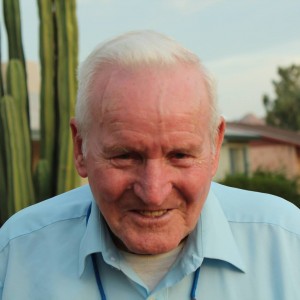 Maurice Mallery (pictured at right) grew up on the family farm in Windsor, New York where he became a successful potato farmer. Members of the WCG church in Manhattan (New York City) would come up on weekends to enjoy his farm. But due to some bad advice, Maurice lost the farm when he changed to organic farming without properly preparing the soil. He also lost his daughter Terry to appendicitis. Devastated, the family moved away to join the WCG construction crew in building festival sites in the Poconos (Pennsylvania); then Wisconsin Dells.
Maurice Mallery (pictured at right) grew up on the family farm in Windsor, New York where he became a successful potato farmer. Members of the WCG church in Manhattan (New York City) would come up on weekends to enjoy his farm. But due to some bad advice, Maurice lost the farm when he changed to organic farming without properly preparing the soil. He also lost his daughter Terry to appendicitis. Devastated, the family moved away to join the WCG construction crew in building festival sites in the Poconos (Pennsylvania); then Wisconsin Dells.
When that work ended, the family moved to Arizona, living first in a small trailer in the desert where Maurice worked laying water and sewer lines. Eventually they bought a small home, fixed it up, then sold it. They repeated that process several times, eventually buying a large RV and travelling the country. Though Maurice suffered many losses, he fought his way back.
Following a split in the church, he and his wife Carol traveled visiting various congregations of the group they joined. Eventually they settled in Florida. When Carol died, Maurice moved to New Jersey to be near family.
I fondly remember many great discussions with Maurice. Knowledgeable on multiple topics, he was always open minded and willing to learn. “It’s what you learn after you know everything that counts,” he would say. My life has been greatly enriched by this man.
Cards may be sent to:
Oleh and Diane Kubik
1150 Talan Dr
Endicott, NY 13760-7033
A church that acts its size
It’s common for small churches to struggle trying to be something they are not—a big church. Doing so often leads to frustration and discouragement, even burn-out. It also fails to capitalize on the advantages of being a small church.
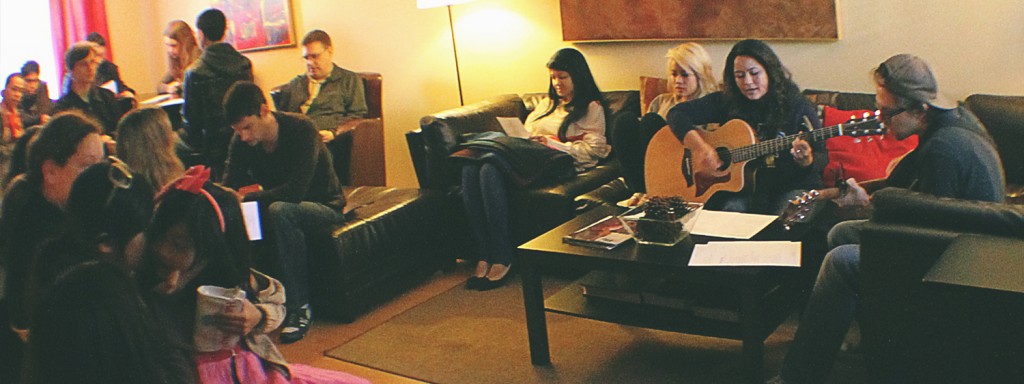
Bob Desagun, a pastor in the Christian and Missionary Alliance denomination, helpfully addresses this subject in a blog post entitled “Small is Big.” Here is part of what he wrote:
As a pastor I was frustrated with the failure to see our attendance increase. It brought me to the point of questioning whether my “season” of ministry was over. Should I throw in the towel and call it quits? Instead, I took an overdue short vacation coupled with a long time in the prayer closet. God revealed to me that I was trying to make the church something it wasn’t—big…. I came to realize that it was time we started acting our size.
Bob goes on to describe steps his congregation took to take advantage of who God had made them. To read the post go to http://www.cmalliance.org/alife/small-is-big/.
To download a free book with helpful tips about operating as a small church (what the book refers to as “simple church”), go to http://www.simplechurchrevolution.com/.
Jason Frantz
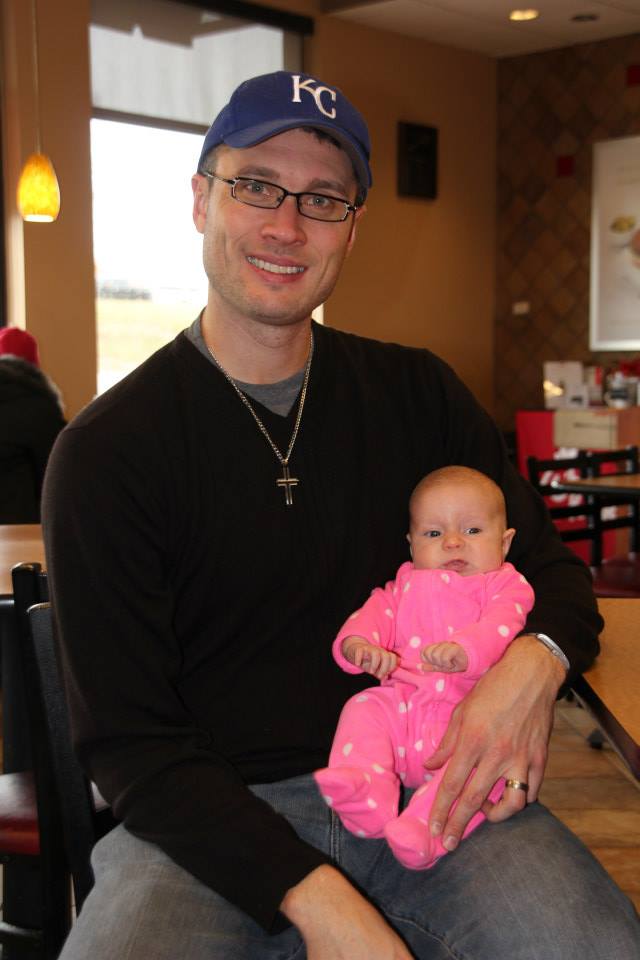
Born and raised within GCI, Jason Frantz, the lead pastor of GCI’s congregation in Kansas City, Missouri, has seen and experienced a lot of growth and change in his journey through life. According to Jason, he had a front row seat to “the wonderful way God was walking with us and working in us the entire time.”
Jason grew up in a small town outside of Dayton, Ohio, and knew from a young age God was calling him as a church shepherd. As he grew, his God-given gifts for working with people and loving them as God loves them were nurtured. In 2011, he began actively working towards becoming a pastor. His wife Julie had heard about the GCI Internship Program, and Pastor Rick Shallenberger (who was pastoring in Cincinnati, Ohio, at the time) invited Jason to participate in the program with him.
Jason flourished as an intern in Cincinnati and then as a pastoral resident when the family transferred to serve the church in Kansas City, working with lead pastor Ray Meyer. Along the way, Jason enjoyed “the opportunity to share God’s love and life with people through shepherding, loving and encouraging them in Christ.”
Jason is thankful for the encouragement given him by Pastor Rick and Pastor Ray, who helped him sharpen his God-given gifts and strengths, instead of focusing on his weaknesses. Jason also benefited from the support given by GCI-Cincinnati elder John Halford who encouraged Jason in a way that Jason says was “challenging, fun and interesting!” Within this supportive environment, Jason was able to work on what he refers to as his “spiritual backbone”—remembering that God has a purpose and plan, and he need not let others take advantage of him when he is trying to help them.
When asked what he enjoys most about being part of GCI, Jason said, “I love the humility of the leadership and our focus on genuine and authentic relationships within our fellowship. I love having the strong support system among the pastors that has been encouraged and set up within the denomination. I also appreciate the transparency of our church leaders and their willingness to walk alongside the pastors as they shepherd their congregation.”
As shown above, Jason’s passion is God, family and friends. He loves “relationships, growing deeper with people, and especially hanging out with his wife and children.” His wife Julie plays a significant role in his pastoral ministry—“If it were not for her I would not be the man and pastor that I am. She walks hand and hand with me through the ins and outs of ministry and helps me with many decisions. She does much more than what I can even write about.”
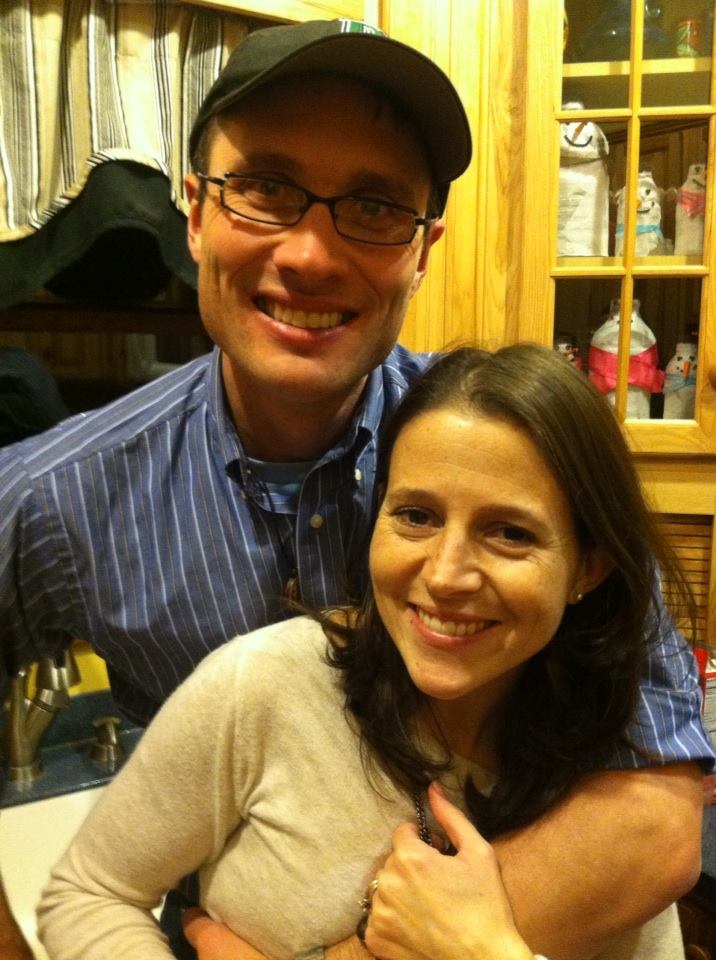 Jason and Julie (pictured at right) met at SEP camp in Orr, Minnesota, in 1993. Their friendship grew into a long-distance relationship in 2001. Julie, living in Oregon at the time, said she would never move to Ohio, but God had different plans. In May 2002 she moved to Ohio and the couple married in December. They welcomed their fourth child, Jocelyn, into the family on November 4, 2014. Her older brothers, Jaron (11), Jacob (9) and Jaxon (6) are definitely in love with and very protective of their little sister.
Jason and Julie (pictured at right) met at SEP camp in Orr, Minnesota, in 1993. Their friendship grew into a long-distance relationship in 2001. Julie, living in Oregon at the time, said she would never move to Ohio, but God had different plans. In May 2002 she moved to Ohio and the couple married in December. They welcomed their fourth child, Jocelyn, into the family on November 4, 2014. Her older brothers, Jaron (11), Jacob (9) and Jaxon (6) are definitely in love with and very protective of their little sister.
Jason says he feels closest to God when he is “away from the busyness of life, surrounded by the beauty of God’s creation.” He also says he connects most deeply with God when he has “opportunity to share in genuine and authentic relationships with other believers in a safe and open environment.”
Jason has some advice for anyone considering the GCI Intern Program: “Be yourself—be open to the guiding work of the Holy Spirit through others as God forms you into the pastor that he desires.”
Quaffing grace
Dear Brothers and Sisters,
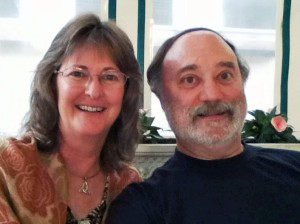 Last week we noted that when it comes to the freedom that is ours in Christ, some can’t handle the truth. Jesus came to reveal the freedom that is ours under grace, not to give us rules and regulations to live by. Sadly, many Christians prefer legalism over grace. Some Christian leaders won’t preach grace, fearing it would encourage their people to sin. They worry that in teaching grace they would lose control over their members who would begin doing whatever they wanted.
Last week we noted that when it comes to the freedom that is ours in Christ, some can’t handle the truth. Jesus came to reveal the freedom that is ours under grace, not to give us rules and regulations to live by. Sadly, many Christians prefer legalism over grace. Some Christian leaders won’t preach grace, fearing it would encourage their people to sin. They worry that in teaching grace they would lose control over their members who would begin doing whatever they wanted.

For some, grace is scandalous. How can God forgive all unconditionally—aren’t some sins much worse than others? How can all people have opportunity for the same reward?
For others, grace is irrational because it offends their sense of fairness and justice. You’ll recall the parable where the workers in the vineyard didn’t like it that others were paid the same for doing much less work (Matthew 20:1-16).
For others, grace is risky. One well-meaning Christian woman told me not to preach grace because that would open wide the door to lawlessness and unrighteousness. If God already has pardoned us, she wondered, wouldn’t people naturally desire to get away with as much as they can? What she failed to understand is that someone who hears of God’s grace then uses it as an excuse to continue in disobedience has actually not received grace but is presuming upon it. God’s grace does not promote licentiousness and it’s not some “newfangled idea.” No, grace has been around since the beginning. Note what the apostle Paul told his protégé Timothy:
So do not be ashamed of the testimony about our Lord… Rather, join with me in suffering for the gospel, by the power of God.He has saved us and called us to a holy life—not because of anything we have done but because of his own purpose and grace. This grace was given us in Christ Jesus before the beginning of time, but it has now been revealed through the appearing of our Savior, Christ Jesus, who has destroyed death and has brought life and immortality to light through the gospel (2 Timothy 1:8-10).
I can say from personal observation and experience that legalism produces far more lawlessness than grace. Like many of you reading this, I spent years hearing one sermon after another pleading with me to stiffen my upper lip, steel up my backbone, try harder, pray longer, read the Bible more, serve more diligently and stop every thought contrary to God’s law. All this was so I would become more holy—more like God. Over time, I realized I was actually developing a spiritual numbness. I was praying more, studying more and serving more, but it was more out of a sense of guilt or because it was expected of me, than out of a desire to know God and share his love with others.
While there is nothing wrong with praying or reading the Bible more, neither made me more holy. At times it might have made me more judgmental or pious, but not more holy. (As a side note, one of the most mature Christians I have known never read the Bible because she did not know how to read!)
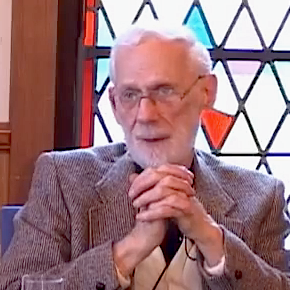 Many of my favorite quotes about grace are from the colorful Christian author, Robert Farrar Capon (pictured at right). In his book Kingdom, Grace, Judgment: Paradox, Outrage, and Vindication in the Parables of Jesus, he wrote this:
Many of my favorite quotes about grace are from the colorful Christian author, Robert Farrar Capon (pictured at right). In his book Kingdom, Grace, Judgment: Paradox, Outrage, and Vindication in the Parables of Jesus, he wrote this:
The Gospel of grace must not be turned into a bait-and-switch offer. It is not one of those airline supersavers in which you read of a $59.00 fare to Orlando only to find, when you try to buy a ticket, that the six seats per flight at that price are all taken and that the trip will now cost you $199.95. Jesus must not be read as having baited us with grace only to clobber us in the end with law. For as the death and resurrection of Jesus were accomplished once and for all, so the grace that reigns by those mysteries reigns eternally—even in the thick of judgment.
I wonder why we don’t hear more sermons about Jesus and his grace, and less sermons about Christian living and how to improve ourselves or our ministries. Don’t misunderstand, I’m not opposed to sermons about personal improvement, moral living and letting our lights shine. But if those sermons are not given under the umbrella of grace, we can lose sight of the Author of grace. Here’s an illustration: One popular preacher on television almost always has three to seven “to-do” points in his sermons about how to become a more successful Christian. After a year, listeners would have at least 150 points to live by, and nearly 500 after three years. It wouldn’t be long before they’d have more points to live by than the 613 commands of the old covenant! It would be impossible to even remember all these points, let alone consciously put them into practice.
Grace is different, even counter-intuitive. God’s Spirit living in us leads us to bear fruit as we live our lives in union with Christ. We don’t produce the fruit that comes forth—we share what our Lord gives us. It’s simple to remember—we can’t do God’s work in our own power. As we live the new life in Christ, grace wrestles control out of our hands and destroys our safe, conditional world. God’s grace doesn’t just cosmetically change us—it transforms us from the inside-out. Notice Paul’s comment:
For the grace of God has appeared that offers salvation to all people. It teaches us to say “No” to ungodliness and worldly passions, and to live self-controlled, upright and godly lives in this present age, while we wait for the blessed hope—the appearing of the glory of our great God and Savior, Jesus Christ, who gave himself for us to redeem us from all wickedness and to purify for himself a people that are his very own, eager to do what is good (Titus 2:11-14).
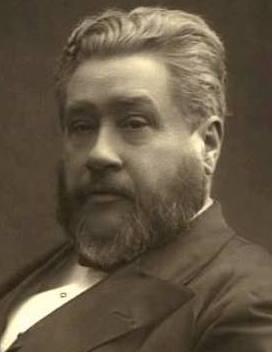 The great preacher Charles Spurgeon (pictured at right) put it this way:
The great preacher Charles Spurgeon (pictured at right) put it this way:
When I thought God was hard, I found it easy to sin; but when I found God so kind, so good, so overflowing with compassion, I beat my breast to think I could ever have rebelled against One who loved me so and sought my good.
This is the experience of many when they move away from legalism (where they strive diligently through their own efforts to live right and stop sinning) and, trusting in Christ, begin living under grace. In that regard, note this from Capon in Between Noon & Three: Romance, Law & the Outrage of Grace:
The Reformation was a time when men went blind, staggering drunk because they had discovered, in the dusty basement of late medievalism, a whole cellar full of fifteen-hundred-year-old, two-hundred proof Grace—bottle after bottle of pure distillate of Scripture, one sip of which would convince anyone that God saves us single-handedly. The word of the Gospel—after all those centuries of trying to lift yourself into heaven by worrying about the perfection of your bootstraps—suddenly turned out to be a flat announcement that the saved were home before they started… Grace has to be drunk straight: no water, no ice, and certainly no ginger ale; neither goodness, nor badness, not the flowers that bloom in the spring of super spirituality could be allowed to enter into the case.
Grace means there is nothing we can do to make God love us more—no spiritual calisthenics, no renunciation, no knowledge gained from seminaries and divinity schools, no crusading on behalf of righteous causes. Grace also means there is nothing we can do to make God love us less—no racism, pride, pornography, adultery or even murder. Grace means that God already loves us as much as an infinite God possibly can. Imbibing deeply of such grace forever changes us.
I’ll have more to say about grace next week when we look at how people short-circuit their spiritual formation by fixing their eyes on self rather than on Jesus, the author and finisher of their faith.
Quaffing grace from a large decanter,
Joseph Tkach
 PS: Tammy and I recently visited our congregation in Fairfield, California, pastored by Steve and Karon Smith. We had a wonderful time there with 40 brothers and sisters in Christ. Fairfield is gorgeous—surrounded by orchards, groves and vineyards. In nearby Healdsburg we visited Mauritson Winery (pictured at right), owned and operated by Clay and Carrie Mauritson. Clay was an outside linebacker for the Oregon Ducks and Carrie is the daughter of Gordon and Marilys Green, one of our pastoral couples in South Africa. I recommend Mauritson’s Zinfandel and we’ll have to return to taste their Cabernet Savignons. Oh, and their Port is quite nice—just ask Mike Swaggerty who joined us for dinner!
PS: Tammy and I recently visited our congregation in Fairfield, California, pastored by Steve and Karon Smith. We had a wonderful time there with 40 brothers and sisters in Christ. Fairfield is gorgeous—surrounded by orchards, groves and vineyards. In nearby Healdsburg we visited Mauritson Winery (pictured at right), owned and operated by Clay and Carrie Mauritson. Clay was an outside linebacker for the Oregon Ducks and Carrie is the daughter of Gordon and Marilys Green, one of our pastoral couples in South Africa. I recommend Mauritson’s Zinfandel and we’ll have to return to taste their Cabernet Savignons. Oh, and their Port is quite nice—just ask Mike Swaggerty who joined us for dinner!
Death of Gary Sefcak
We were saddened this week to learn of the death of Gary Sefcak who had been employed by WCG in various capacities since 1952, including pastoring the congregation in San Bernardino, California. The note below is from Carn Catherwood.
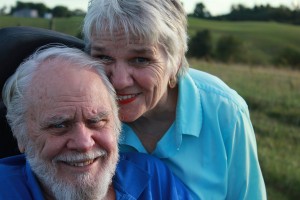
My kind, always courageous brother-in-law, Gary Sefcak, passed away late in the afternoon on July 20, surrounded by his wife Karla, two children, his son-in-law, and three grandchildren. Gary was 81 years old when he entered the Lord’s presence where “there shall be no more death, nor sorrow, nor crying and there shall be no more pain.” Gary had been a paraplegic since age 19, shackled by extreme physical limitations which he handled with much dignity. Now he no longer is dependent on crutches, motorized chairs and the assistance of loving friends and family. He can now run to embrace those who preceded him in death.
My heartfelt thanks to so many for their prayers for Gary and Karla, their daughter (Kim Hollis), their son (Tommy Sefcak), and Gary’s sister (my wife, Joyce Catherwood).
Precious in the sight of the Lord is the death of his faithful servants (Psalms 116:15).
Cards may be sent to:
Karla Sefcak
519 Conn’s Lane
Lancaster, KY 40444


